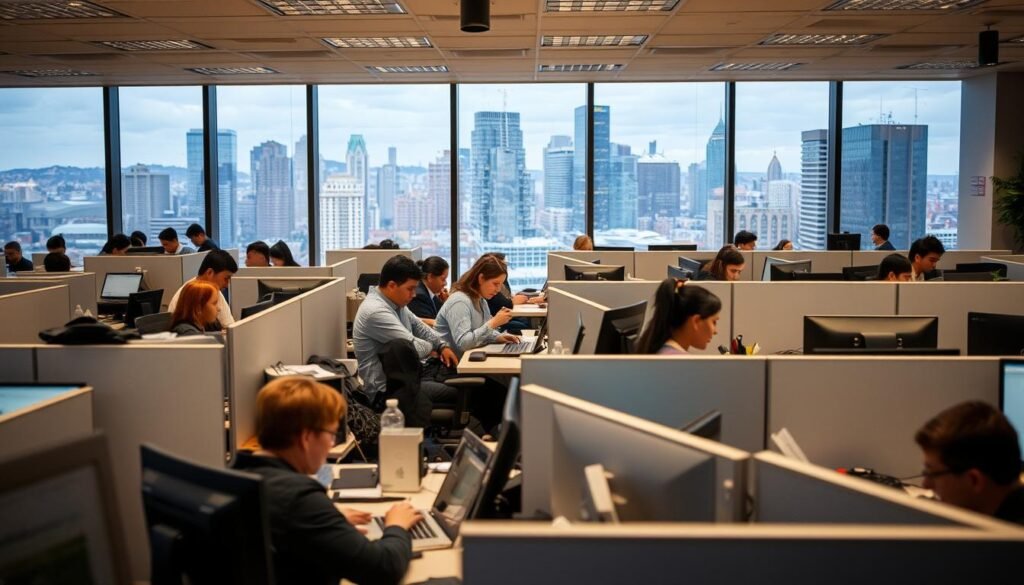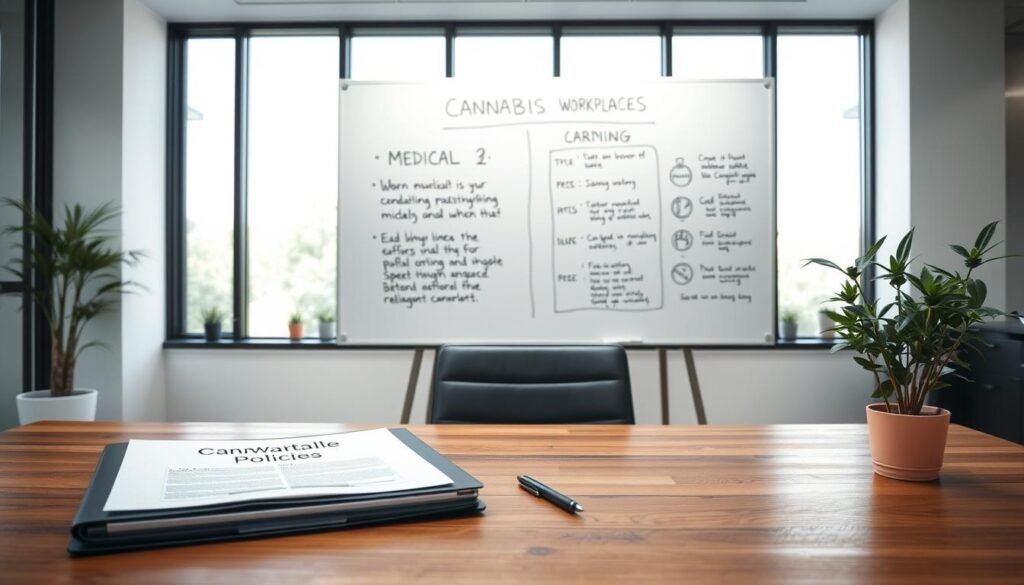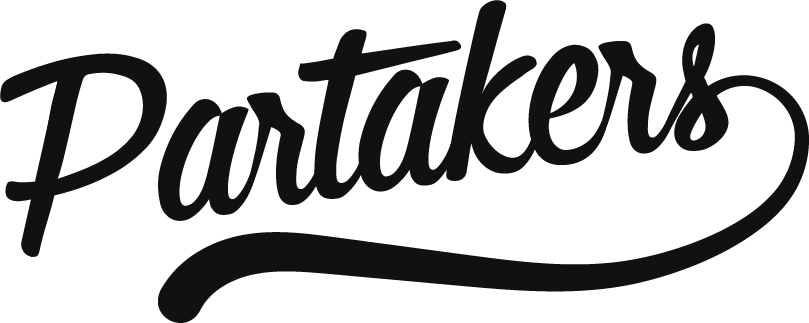As cannabis legalization spreads across the US, a big question pops up: are we ready for weed in the workplace?
The world of cannabis workplace policies is changing fast. Employers are now thinking differently about this touchy topic. With more states making cannabis legal, the old “no tolerance” rule is facing a challenge.
The employment trends are moving, and companies need to keep up. But what does this mean for keeping the workplace safe and productive?
Key Takeaways
- The growing acceptance of cannabis is changing workplace policies.
- Employers must balance employee rights with workplace safety concerns.
- Cannabis legalization is driving changes in employment trends.
- Companies need to adapt their policies to the new legal landscape.
- The future of cannabis workplace policies remains uncertain.
The Current Cannabis Landscape in America
Thirty states and Washington, D.C. have made recreational cannabis use legal or decriminalized. This change is big for work places. It’s making us rethink how we handle jobs and rules at work.
Legalization Status Across States
Cannabis laws differ a lot in the U.S. It’s key for bosses to know these laws, no matter where they work.
Recreational vs. Medical Legalization Map
It matters if a state lets people use cannabis for fun or just for health reasons. Some places allow both, while others only let it for health issues or have made it legal but not for fun.
| State | Recreational Use | Medical Use |
|---|---|---|
| California | Legal | Legal |
| New York | Legal | Legal |
| Texas | Illegal | Legal (Limited) |
Knowing the laws in each state is vital for bosses. It helps them make rules that follow the law and keep everyone safe and happy at work.
The Evolution of Cannabis Workplace Policies
The cannabis industry is growing fast. This has made employers change their workplace policies. Now, companies are looking at how they view cannabis use by employees.
Traditional Zero-Tolerance Approaches
Many companies used to have zero-tolerance policies for any substance use, including cannabis. These strict rules meant getting fired if you tested positive. But, with more places legalizing cannabis, these rules are being questioned.
Shifting Attitudes Among Employers
Now, employers are making their policies more flexible. They understand the difference between being impaired at work and using cannabis outside work. This change helps them keep the best workers in a competitive job market.
Industry-Specific Policy Variations
Each industry is creating its own cannabis policies. For example, jobs that need safety, like construction, have stricter rules. But tech companies might have looser policies.
Case Studies of Progressive Company Policies
Some companies are leading the way with new cannabis policies. A top tech firm, for example, focuses on impairment at work rather than just cannabis use. A workplace expert notes, “Companies are moving away from just drug tests to check if workers are fit for duty.”
“The key is to create policies that are fair, consistent, and comply with state laws,” said Jane Smith, HR Director at a progressive company.
These examples show how companies are handling cannabis use in the workplace. They aim to balance employee rights with what’s best for the business.
Legal Considerations for Employers
As cannabis laws change, employers face new challenges. They must protect their workers while keeping the workplace safe and productive. This is key as cannabis legalization impact grows in different industries.
Duty to Provide Safe Working Environments
Employers must keep their workplaces safe for everyone. With more people using cannabis, this task gets harder. They need to make rules about cannabis use and its impact on safety.
Liability Concerns and Insurance Implications
The risk of accidents or injuries from cannabis use is a big worry for employers. They need to know their legal risks and how cannabis affects their insurance.
Recent Legal Precedents
Recent court decisions are changing how employers handle cannabis in the workplace. Some courts support firing workers for cannabis use, even for medical reasons. It’s important for employers to understand these legal precedents to deal with the legal landscape.
Employee Rights in the Age of Cannabis Legalization
Cannabis legalization is changing how we think about employee rights. This is true for those who use cannabis for medical reasons. As more places allow cannabis, employers face new challenges in balancing rights and rules.
Medical Cannabis Patient Protections
Workers who use medical cannabis might have legal shields. Some places have laws that stop employers from penalizing them for it.
ADA Considerations and Limitations
The Americans with Disabilities Act (ADA) offers some protection. But, it’s not a complete shield. The ADA doesn’t cover employees using illegal drugs, and cannabis is still illegal under federal law.
Off-Duty Consumption Rights
Off-duty cannabis use is a hot topic in employee rights. Some places protect workers from losing their jobs for using cannabis outside work.
State-Specific Employment Protections
But, laws on this vary by state. For example, some places protect workers from job loss for off-duty use. Others don’t.
| State | Off-Duty Cannabis Use Protection | Medical Cannabis Protection |
|---|---|---|
| California | No | Yes |
| New York | Yes | Yes |
| Texas | No | Limited |
Drug Testing in the Modern Workplace
Cannabis legalization has changed how we think about drug testing at work. More states allowing cannabis use has made it hard for employers. They must balance keeping workplaces safe with the growing acceptance of cannabis.
Limitations of Current Testing Methods
Today’s drug tests have big flaws, mainly with cannabis. They look for THC metabolites, which can stay in your system for weeks. This makes it hard to know if someone is actually impaired at work.
Impairment vs. Presence Testing
It’s important to know the difference between impairment and presence tests. Impairment tests check if someone is currently under the influence. Presence tests just show if someone has used a substance recently. New technologies are focusing on impairment testing to better judge if someone is fit for work.
Emerging Testing Technologies
New tech is being made to fix old drug testing problems. These new tests can spot recent cannabis use and how impaired someone is.
Alternatives to Traditional Drug Screening
Some companies are looking at new ways to screen for drugs. They might:
- Use oral fluid tests instead of urine tests
- Check for impairment through how well someone performs
- Use wearable tech to keep an eye on how fit employees are
Here’s a look at different drug testing methods:
| Testing Method | Detection Window | Impairment Measurement |
|---|---|---|
| Urine Test | Up to 30 days | No |
| Oral Fluid Test | Up to 24 hours | Possible |
| Wearable Technology | Real-time | Yes |
Cannabis Legalization Impact on Employment Trends
Cannabis legalization is changing the workplace. It affects how companies find and keep employees. Employers must balance keeping a safe work place with respecting employees’ rights.
Recruitment and Retention Challenges
Changes in cannabis laws are altering hiring and keeping employees. Companies with good cannabis policies might attract more workers.
Competitive Advantage of Progressive Policies
Employers with lenient cannabis policies are seen as better by many. This is key for hiring and keeping staff, mainly the younger crowd.

Changing Candidate Expectations
Job seekers now see cannabis use as a personal choice. It shouldn’t affect their job chances. Employers must adjust to these new views.
Generational Differences in Cannabis Attitudes
Views on cannabis vary by age. Younger workers are more likely to use it and care about company policies.
| Generation | Attitude Towards Cannabis | Impact on Employment |
|---|---|---|
| Baby Boomers | Generally more conservative | Less likely to be influenced by cannabis policies |
| Millennials | More accepting of cannabis use | More likely to consider cannabis policies when job hunting |
| Gen Z | Highly accepting of cannabis use | May prioritize companies with progressive cannabis policies |
Knowing these differences is key for employers. It helps them attract and keep the best talent in a tough job market.
Industry-Specific Cannabis Challenges
Cannabis legalization has introduced new challenges for employers. This is true, mainly in industries where safety is key. Each sector has its own hurdles in balancing employee rights with keeping the workplace safe and productive.
Safety-Sensitive Positions
Jobs that are critical to safety need careful thought about cannabis use. Workers in these roles handle important equipment or keep others safe. This makes it vital to avoid any impairment.
Transportation and Heavy Machinery Operations
Transport and construction jobs are at high risk if workers use cannabis. Strict policies and regular testing are essential. They help avoid accidents in these fields.
Federal Contractors and Regulated Industries
Companies that work with the federal government or in regulated fields face strict rules. This includes healthcare and finance. They must deal with the differences between federal and state cannabis laws.
Customer-Facing Roles
Businesses with roles that involve customers need to keep a professional image. Retail, hospitality, and similar sectors must think about how cannabis use affects employee behavior and customer service. Clear policies and training programs can help manage these issues.
Medical vs. Recreational Use: Policy Distinctions
Cannabis legalization is growing in the United States. Employers now face the task of telling medical from recreational use at work. It’s key to create cannabis workplace policies that work for everyone.
Accommodation Requirements for Medical Users
Employers need to think about accommodation requirements for medical cannabis users. They must understand their legal duty to make reasonable adjustments. This might mean changing work tasks or giving leave for medical visits.
Recreational Use Boundaries
Employers also have to set limits for recreational cannabis use. They need to decide on policies for use during work, possession at work, and being impaired. It’s important to share these rules clearly with everyone to keep the workplace safe and productive.
Handling Disclosure Conversations
When talking about cannabis use, employers should be kind and professional. It’s important to make a safe space for employees to talk about their use. At the same time, they must follow company rules.

Creating Balanced Cannabis Policies
As more places in the U.S. legalize cannabis, employers face a big challenge. They need to make policies that work for everyone. This means understanding the law, what employees want, and how it affects work safety and productivity.
Performance-Based Approaches
More employers are using performance-based policies. These focus on how well someone does their job, not just if they use cannabis. This way, policies are fair and don’t single out cannabis users.
Impairment Recognition Training for Managers
Training managers to spot signs of impairment is key. This training helps them deal with problems early. Effective training programs look at what people do, not just what they might be using.
Clear Communication Strategies
It’s important to talk clearly about cannabis policies. Employers should make sure everyone knows the rules and what happens if they’re broken. Transparency builds trust with employees.
Sample Policy Language and Implementation
Using sample policy language can help. For example, a policy might say: “You must be ready to work and do your job safely. Using cannabis or being under its influence at work is not allowed.” A table can show what a good policy includes.
| Policy Component | Description | Example |
|---|---|---|
| Pre-Employment Screening | Drug testing before hiring | Mandatory cannabis screening for safety-sensitive positions |
| Impairment Policy | Guidelines for determining impairment | Training for managers to recognize signs of impairment |
| Disciplinary Actions | Consequences for policy violations | First offense: written warning; second offense: suspension |
“The key to a successful cannabis policy is balancing the needs of the organization with the rights of employees. Employers must navigate this complex issue with care and consideration.”
Future of Cannabis in American Workplaces
The cannabis scene in American workplaces is about to change a lot. Laws and how people view cannabis are shifting. Employers need to adjust their ways to keep up with these changes.
Potential Federal Policy Changes
Changes in federal policies could really change how cannabis is handled at work. If cannabis is reclassified at the federal level, it could make rules more consistent across states. This could make it easier for companies that operate in many states to follow the rules.
Predicted Workplace Adaptations
Workplaces might start to use more detailed drug testing and focus on whether someone is impaired, not just if they have cannabis. Companies might need to teach managers how to spot signs of being under the influence. They will also have to create clear rules for dealing with cannabis use.
Emerging Best Practices
Some of the best practices include:
- Using performance-based approaches for cannabis policies
- Teaching employees clearly about cannabis rules
- Creating accommodation policies for medical cannabis users
As the future of cannabis in workplaces evolves, it’s key for employers and employees to stay up to date.
Conclusion
Cannabis legalization is changing the US, and employers need to update their policies. They must find a balance between respecting workers’ rights and keeping the workplace safe.
Employers who tackle cannabis legalization in their policies can avoid risks and create a better work culture. They can understand how cannabis affects work and make the workplace more productive and friendly.
As the cannabis laws change, employers must keep up with the latest news. This way, they can follow the rules and make a positive work environment. This benefits everyone involved.
FAQ
What are the main differences between recreational and medical cannabis legalization?
Recreational cannabis lets adults use it for fun. Medical cannabis is for health reasons, with a doctor’s okay. Employers need to know this to make good policies.
How are workplace policies regarding cannabis evolving?
Workplace rules are getting more flexible. Some companies have special rules for cannabis. Good companies find a balance between employee rights and safety.
What are the key legal considerations for employers dealing with cannabis in the workplace?
Employers must think about legal risks, keeping workplaces safe, and recent court cases. They also need to follow state laws about cannabis.
What rights do employees have regarding cannabis use?
Employees using medical cannabis might be protected by law. Some places also protect using cannabis outside work. Employers should know this to avoid unfair treatment.
How is cannabis legalization impacting employment trends?
Legalizing cannabis brings both problems and chances for employers. It affects hiring and keeping workers, and what job seekers expect. Employers need to keep up to stay ahead.
What are the challenges in drug testing for cannabis?
Testing for cannabis has its limits. It’s hard to tell if someone is impaired or just has cannabis in their system. New tests are being made to solve this problem.
How can employers create balanced cannabis policies?
Employers can focus on how well workers do their jobs. They should also talk clearly about their policies. This way, they can handle both medical and recreational use fairly.
What are the industry-specific challenges related to cannabis use?
Jobs that need safety, federal contracts, and regulated fields face special issues with cannabis. Employers in these areas need to make policies that meet these needs.
How might federal policy changes impact workplace cannabis policies?
Changes in federal laws could greatly affect workplace policies on cannabis. Employers should be ready to adjust to these changes.
What is the predicted future of cannabis in American workplaces?
As laws on cannabis change, workplaces will likely adjust too. Employers who make flexible and informed policies will do best in this new world.

